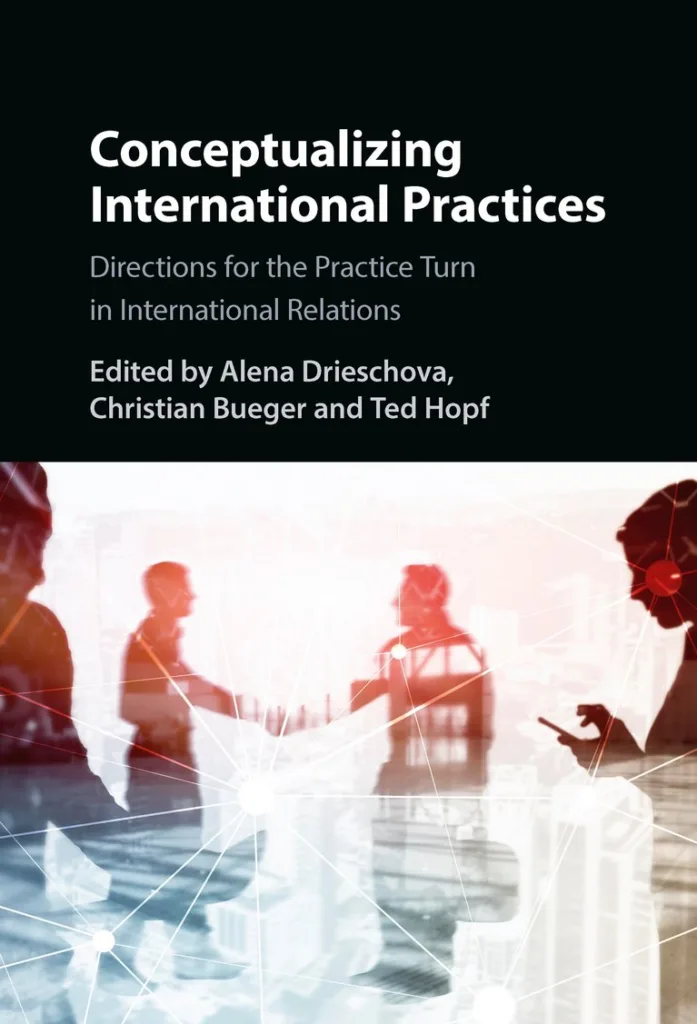On the 10th of May we are discussing the state and future of international practice theorizing at an event in Copenhagen.

Practice theorizing has become one of the most important approaches in political science and international relations. This roundtable reflects on the state of the debate in the light of the recently published book “Conceptualizing International Practices” (Cambridge University Press, 2022).
The book edited by Alena Drieschova, Christian Bueger and Ted Hopf, engages in conversations around key concepts, like power, change, normativity, or knowledge. It shows the value of theorizing politics and the international through practice.
Theorizing practices: Taking the next steps
Roundtable and book launch, 10.5.2023, 14.30-16.00
Department of Political Science, CSS, Øster Farimagsgade 5, Building 4, Room 4.2.26
Speakers: Christian Bueger (chair), Alena Drieschova (Cambridge University), Jon Austin, Rebecca Adler-Nissen (Department of Political Science), Bente Halkier (Department of Sociology), and Nora Stappert (Faculty of Law). All are welcome.
